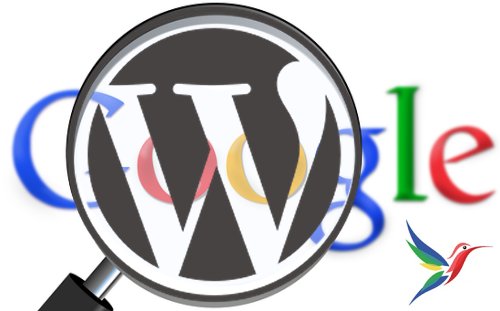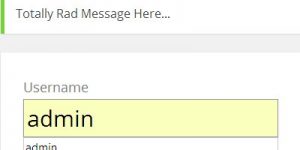Comment on WordPress SEO Tutorial by SEO Dave.

Through SEO research I work under these understandings and loose rules.
There will be a finite amount of SEO benefit available from any SEO important part of a page/code and this includes headers which can sometimes mean more is less.
It’s believed H1 is more important than H2 and so on.
I’ll use this site as examples.
Stallion covers the H1 automatically because it’s so important.
On the home page and unimportant dated archives the name of the site is within a H1 header “Stallion WordPress SEO Theme”.
On categories, tags and search results the name of the category, tag or search phrase is within the H1 header.
On posts and pages the title of the post/page is within the H1 header, so this post the H1 is “Stallion SEO WordPress Theme Support”.
Since I’m writing a comment and with the Stallion theme comments can generate their own pages the comment page will have a H1 that includes the title of the comment (in this case “WordPress Themes and Search Engine Optimization of Headers, H1, H2, H3, H4”).
So H1 wise Stallion covers H1 needs as long as you keep SEO in mind when naming your site, categories, tags, posts and pages.
If you decide to add more H1 headers to posts/pages assume the words within all the H1 headers shares the H1 benefit, basically whatever you add to your manually added H1s is added to the Stallion H1. Take a page with title “Stallion SEO WordPress Theme Support” that’s 5 keywords, meaning the H1 benefit is shared over those 5 keywords, each receive one fifth the H1 SEO benefit. If I added more H1 headers say “Stallion Support” and “Stallion SEO Help” we now have 10 keywords within H1 headers.
I’ve not been able to conclusively test how the benefit is shared when a keywords is repeated, in the above 3 H1 headers there’s 10 keywords, but only 6 are unique keywords. There’s the argument Google takes into account what a user sees, so in this case a user sees 10 keywords within H1 headers and so the benefit should be shared in tenths and since the keywords Stallion is used 3 times it should gain three tenths of the H1 SEO benefit. I don’t know for sure that this is how it works, but it is how Google works. If it works the other way each word gains 1/6th of the SEO benefit.
On the home page and categories, tags etc… the H2 includes the title of the posts and pages linked to. If your archives have 10 posts you’ll have 10 sets of H2s. Hmm, that just gave me a good idea for improved SEO on archives, currently there’s no H3 and H4 usage on archive pages, would makes sense to have something like say two H2s, four H3s, four H4s and more than 10 posts make them H5s. I’ll have to code that in for the next update.
Stallion doesn’t use H2s automatically on posts and pages, they are left for the user to generate them manually so you can add more related key phrases. Reason for this is there’s a limited number of useful phrases to grab from a post automatically, it’s reasonable to assume your title is going to be SEO’d but not reasonable to assume the first 5 words of a post say is keywords.
On posts and pages depending on the setup and use of supported plugins there’s a splattering on H3s and H4s repeating the title of the post to reinforce the keywords within the title. For example the comment areas and the related posts plugins I’ve SEO’d use H3 and H4 headers.
All Stallion header use will use the posts/page title so it adds to the SEO of the page as long as your posts/pages titles are built with SEO in mind. If you call your posts “What I did on Saturday” when it’s about how you rebuilt a PC from scratch don’t expect to rank well for SERPs like “How to Rebuild a PC in 24 Hours”.
Generally speaking header usage should be something like:
One H1, one or two H2s, whatever works for H3+
You’ll note on this page there’s the title of the post in the Stallion H1, Stallion comment H3, Stallion comment H4 and the related articles plugin H3 with a manually added H2 with content “Stallion Theme Tutorials and Features”. Most of my pages are built like this if I remember to add the H2 (I get lazy :-)).
As I said above assume the search engine optimization benefit is shared over the number of words used, so it doesn’t matter if you have one H1 header with 10 keywords or ten H1 headers with one keyword each, same for H2, H3…
David


More Comments by SEO Dave
WordPress SEO Techniques
How to Noindex Paged WordPress Categories and Tags
Before I explain how to noindex paged categories and tags, first going to cover some basic SEO misunderstandings.
If you use a WordPress theme like the Stallion SEO Theme your tags, categories and other WordPress archives will use post excerpts. Have …
Continue Reading WordPress SEO Guide
WordPress SEO Techniques
WhiteHat SEO PR Sculpting : WordPress SEO of Categories Siloing
1,200+ posts in only 8 categories averages at 150 posts per category IF you have them spread evenly (which you won’t).
With the standard 10 posts per category that’s 15 pages deep, unless you have a high PR site (loads of …
Continue Reading WordPress SEO Guide
WordPress SEO Techniques
Whitehat SEO PR Sculpting : Delete WordPress Tags and Categories with NO Search Engine Traffic
If some WordPress tags get search engine traffic keep them and keep the same layout, but delete the tags that get no traffic.
This way your tags with traffic loose no internal backlinks and you waste no link benefit on tags …
Continue Reading WordPress SEO Guide
WordPress SEO Techniques
WordPress SEO Categories and Tags Optimization
I don’t use WordPress Tags because in structure they are the same as Categories.
A lot of webmasters overload their sites with Tags/Categories which means they need more link juice to power their sites SEO. You want most of your SEO …
Continue Reading WordPress SEO Guide
WordPress SEO Techniques
Google Sitelinks and Meta Descriptions Tag
For both questions I’ve not done anything special to achieve this, left it to Google to automatically set the meta description and the Google sitelinks. So what you see is what Google thinks are the best meta descriptions and sitelinks.
Stallion …
Continue Reading WordPress SEO Guide
WordPress SEO Techniques
SEO Impact of Font Sizes
That requires editing CSS files, each colour scheme and layout have their own CSS files, one for the colour scheme and one for the layout, the current two files your site uses are
/wp-content/themes/stallion-seo-theme/colors/layout-310r.css (layout)
/wp-content/themes/stallion-seo-theme/colors/style-brown.css (colour scheme)
So those are the two …
Continue Reading WordPress SEO Guide
WordPress SEO Techniques
WordPress Category Excerpts
The WordPress excerpt replaces the default snippet of text you see, the links to the post remain. So just a way to make your categories unique/SEO’d.
I’m sure there are ways to replace the category with custom content and a link …
Continue Reading WordPress SEO Guide
WordPress SEO Techniques
SEO of WordPress Categories
WordPress categories can gain SERPs in their own right, I link to my categories all the time from relevant pages. What I link to/from is based on what the content I’m linking from, regularly link directly to categories on other …
Continue Reading WordPress SEO Guide
WordPress SEO Techniques
WordPress Static Pages
If you want articles not to show on the home page you have the option of using WordPress Static Pages (“Pages >> Add New” instead of “Posts >> Add New”).
Static Pages (like an About Page) are only added to the …
Continue Reading WordPress SEO Guide
WordPress SEO Techniques
Matt Cutts – Google Over SEO Optimized Ranking Algorithm
Listened to the Podcast, lets see if I can link it direct in a comment for others to listen to:
Information from the PodCast:
All those people doing, for lack of a better word, over optimization or overly SEO – versus those …
Continue Reading WordPress SEO Guide
WordPress SEO Techniques
Social Media Metrics and Over SEO Optimized Sites
Which Matt Cutts talk was you listening to?
I have to admit I don’t like using social media for promotion, to date it’s been severely disappointing, I’ve got thousands of Twitter followers and auto Tweet many sites, have around 2,500 Google+ …
Continue Reading WordPress SEO Guide
WordPress SEO Techniques
WordPress SEO Cache Plugins : WP Super Cache vs W3 Total Cache
WordPress Cache Plugins are a must use WordPress SEO plugins for most sites and which one WP Super Cache vs W3 Total Cache is a very good question and I’m afraid I don’t know the answer :-)
I use WP Super …
Continue Reading WordPress SEO Guide